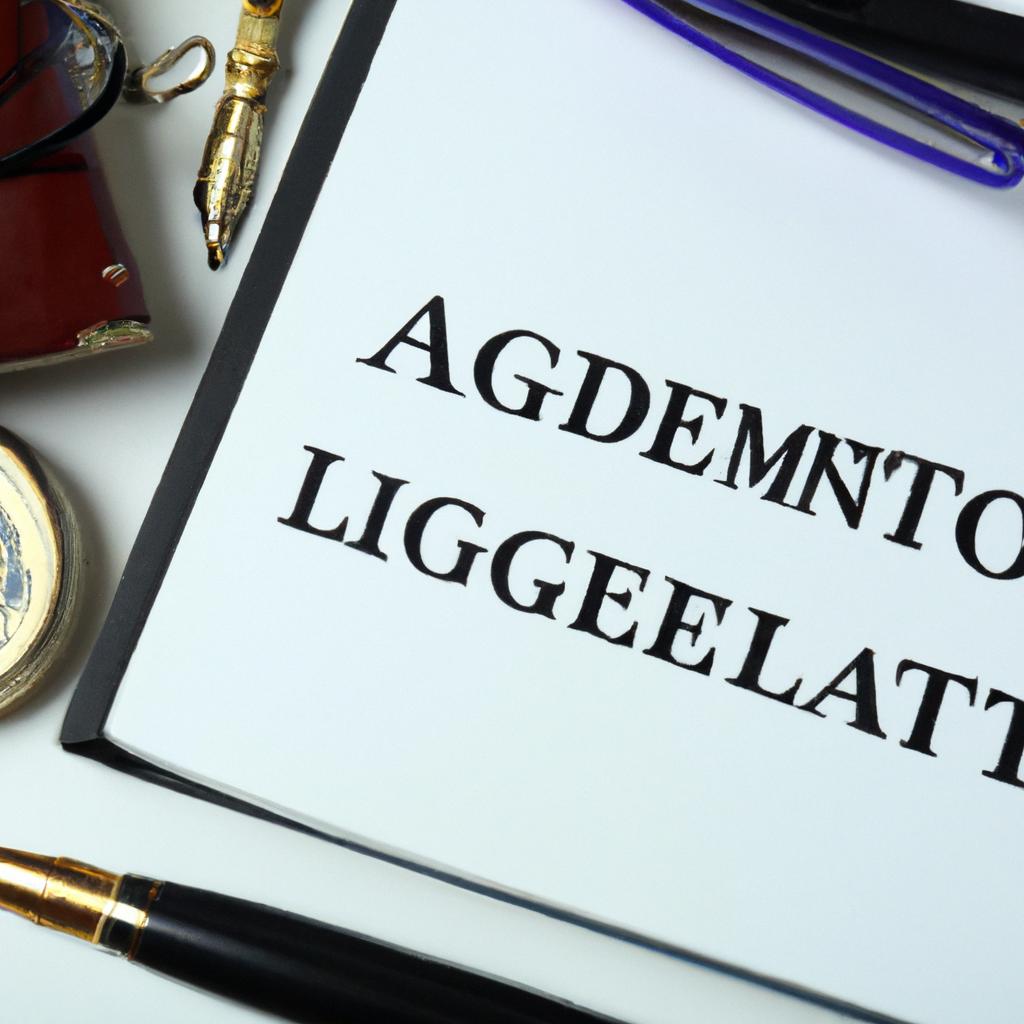When a loved one passes, the emotional toll can be overwhelming. Amidst the grief, there lies the practical matter of taking inventory of their estate. Properly documenting assets and liabilities is an essential step in the probate process, ensuring that the deceased’s wishes are carried out and their affairs are settled in accordance with the law. In this article, we will guide you through the intricate process of inventorying an estate, providing clarity and understanding to an often complex task. As experienced attorneys at Morgan Legal Group in New York City, we are here to offer our expertise in estate planning, probate, elder law, Wills, and trusts to assist you in navigating this important aspect of estate administration.
Strategies for Conducting a Comprehensive Inventory of an Estate
One of the key is to start by gathering all relevant documents. This includes wills, trusts, deeds, financial statements, insurance policies, and any other important paperwork. Organizing these documents will provide a clear picture of the assets and liabilities of the estate.
- Start by gathering all relevant documents such as wills, trusts, and financial statements.
- Organize the documents to get a clear picture of the assets and liabilities of the estate.
Another important strategy is to physically inspect the property and assets of the estate. This includes conducting a thorough walkthrough of the real estate properties, taking inventory of valuable personal belongings, and assessing the condition of any vehicles or other valuable items. This on-site inspection will help ensure that nothing is overlooked in the inventory process.

Navigating Legal Requirements and Guidelines for Documenting Assets
In order to properly inventory an estate, it is crucial to adhere to legal requirements and guidelines for documenting assets. This meticulous process involves cataloging all assets, such as real estate, vehicles, investments, bank accounts, and personal belongings, to ensure accuracy and transparency in estate planning and probate proceedings.
Utilizing a systematic approach is essential for a thorough inventory of an estate. Consider creating a detailed spreadsheet or using estate planning software to organize assets effectively. Be sure to include relevant information such as the description of the asset, location, estimated value, ownership details, and any associated liabilities. Additionally, consulting with a knowledgeable attorney can provide valuable guidance throughout the inventory process to ensure compliance with legal regulations and to protect the interests of the estate beneficiaries.

Utilizing Technology and Professional Assistance to Streamline the Inventory Process
When it comes to efficiently inventorying an estate, utilizing technology and professional assistance can streamline the process and ensure accuracy. One of the key tools for inventorying an estate is inventory management software. This software can help keep track of all assets, their values, and any associated documents in one centralized location, making it easier to organize and update the inventory.
Additionally, seeking the expertise of a professional estate planner or attorney can provide valuable guidance and ensure that all legal requirements are being met throughout the inventory process. A knowledgeable professional can help identify any potential issues, offer solutions, and ensure that the inventory is comprehensive and accurate. By combining technology with professional assistance, estate inventorying can be a more efficient and less daunting task.

Best Practices for Ensuring Accuracy and Thoroughness in Estate Inventory Tracking
When it comes to inventory tracking for estates, accuracy and thoroughness are essential in order to properly manage the assets and ensure compliance with legal requirements. To achieve this, it is important to follow best practices that can help streamline the process and minimize errors.
- Document Everything: Make sure to document all assets, liabilities, and expenses related to the estate. Keep detailed records of all transactions and communications to have a clear audit trail.
- Regular Reconciliations: Periodically reconcile the inventory with bank statements, receipts, and other financial documents to ensure that all information is up to date and accurate.
Q&A
Q: What is estate inventory?
A: Estate inventory is the process of cataloguing and documenting all the assets and belongings left behind by a deceased person.
Q: Why is estate inventory important?
A: Estate inventory is important for legal and financial purposes. It helps ensure that all assets are properly accounted for and distributed according to the deceased person’s wishes or the laws of inheritance.
Q: How do you begin the process of inventorying an estate?
A: The first step is to gather all relevant documents, such as wills, deeds, financial statements, and insurance policies. Then, start by physically going through the deceased person’s belongings, room by room, to create a comprehensive list.
Q: What should be included in the estate inventory?
A: The estate inventory should include all assets such as real estate, vehicles, jewelry, artwork, investments, bank accounts, and personal belongings. It should also list any debts owed by the deceased.
Q: How do you account for the value of the assets in the estate inventory?
A: It is important to accurately assess the value of each asset. This can be done by obtaining appraisals for high-value items, researching market prices for others, and consulting with financial professionals if needed.
Q: What should be done with the estate inventory once it is completed?
A: The estate inventory should be shared with relevant parties, such as beneficiaries, executors, and legal representatives. It will be used to guide the distribution of assets according to the deceased person’s wishes or the laws of inheritance.
Future Outlook
As you embark on the journey of inventorying an estate, remember to approach the task with patience, diligence, and care. By following these steps and using the tips provided, you will be well-equipped to handle the complexities that come with this responsibility. Whether you are an executor, a family member, or a professional, maintaining a detailed inventory is crucial in ensuring a smooth and successful estate settlement process. Remember to seek support and guidance when needed, and trust that you have the skills and resources necessary to navigate through this challenging yet rewarding endeavor. Happy inventorying!
 Inheriting an estate can be both a blessing and a daunting task. On one hand, it means receiving property, assets, and sentimental items that hold cherished memories. However, on the other hand, it also means that you have the responsibility to inventory and manage all these items. Estate inventory is crucial for legal and financial purposes and can be a complex and time-consuming process. In this article, we will provide comprehensive guidelines on how to inventory an estate with ease and efficiency.
Inheriting an estate can be both a blessing and a daunting task. On one hand, it means receiving property, assets, and sentimental items that hold cherished memories. However, on the other hand, it also means that you have the responsibility to inventory and manage all these items. Estate inventory is crucial for legal and financial purposes and can be a complex and time-consuming process. In this article, we will provide comprehensive guidelines on how to inventory an estate with ease and efficiency.
Before we dive into the inventory process, let’s first understand what an estate inventory is. An estate inventory is a detailed list of all the assets and liabilities of a deceased person, including their personal property, investments, and debts. This inventory is carried out to determine the value of the estate and to ensure the proper distribution of assets as per the deceased person’s will or state laws.
The estate inventory process typically involves the following steps:
Step 1: Understanding the legal process
The first and most crucial step is to familiarize yourself with the legal process involved in handling an estate. This may involve obtaining legal documents such as the will, death certificate, and letters testamentary (documents issued by the court authorizing the executor or personal representative to handle the estate). It is essential to consult with a lawyer who specializes in estate law to ensure that you understand your rights and responsibilities as an executor.
Step 2: Assembling a team
Inventorying an estate is a big task and can be overwhelming for an individual to handle alone. It is advisable to assemble a team that can assist you in the process. This may include family members, friends, or professionals such as lawyers, accountants, and appraisers. Having a team can help lighten the workload and ensure that all aspects of the inventory are thoroughly covered.
Step 3: Identifying and organizing assets
The next step involves identifying and organizing all the assets of the estate. This may include real estate, bank and investment accounts, personal property such as jewelry, household items, and vehicles. It is essential to create a detailed list of all the assets and their locations. This can be done physically by going through the deceased person’s property or by using online tools such as estate inventory software.
Step 4: Appraising assets
An important aspect of estate inventory is determining the value of the assets. This is where a professional appraiser comes in handy. They can assess the fair market value of the assets and provide a report that can be used for tax and distribution purposes. It is crucial to get multiple appraisals for high-value items to ensure accuracy.
Step 5: Identifying liabilities
In addition to assets, it is essential to identify any debts or liabilities of the estate. This may include mortgage payments, credit card debts, and outstanding loans. It is crucial to gather all relevant documents and statements to determine the exact amount owed to creditors.
Step 6: Documenting the inventory
Once all the assets and liabilities have been identified and appraised, it is time to document the inventory. This can be done by creating an inventory list or using estate inventory software. The inventory list should include a detailed description of each item, its estimated value, and its location.
Step 7: Distributing assets
After the inventory has been completed and the estate’s value has been determined, it is time to distribute the assets as per the deceased person’s will or state laws. It is crucial to follow the legal guidelines and consult with a lawyer to ensure fair and legal distribution.
Tips and best practices for inventorying an estate:
– Start the inventory process as soon as possible to avoid any delays or potential legal issues.
– Make sure to keep detailed records and documents throughout the process.
– Consider hiring a professional estate sale company to help with the sale of personal property.
– Do not make any changes or dispose of any assets before consulting with a lawyer.
– It is essential to communicate with all parties involved, including beneficiaries and creditors, to avoid misunderstandings and conflicts.
– Seek guidance from professionals to ensure that you are following the proper legal and tax procedures.
Benefits of properly inventorying an estate:
– Avoid any legal disputes or challenges in the distribution of assets.
– Ensure that all assets and liabilities are accounted for and properly valued.
– Potentially reduce estate taxes by accurately determining the estate’s value.
– Protect beneficiaries from receiving unexpected debts or liabilities from the estate.
In conclusion, inventorying an estate is a crucial but often overwhelming task. However, by understanding the process, seeking professional guidance, and staying organized, it can be accomplished with efficiency and accuracy. By following the steps and tips outlined in this guide, you can ensure a smooth and successful inventory process that honors the wishes of the deceased and protects the interests of the beneficiaries.

